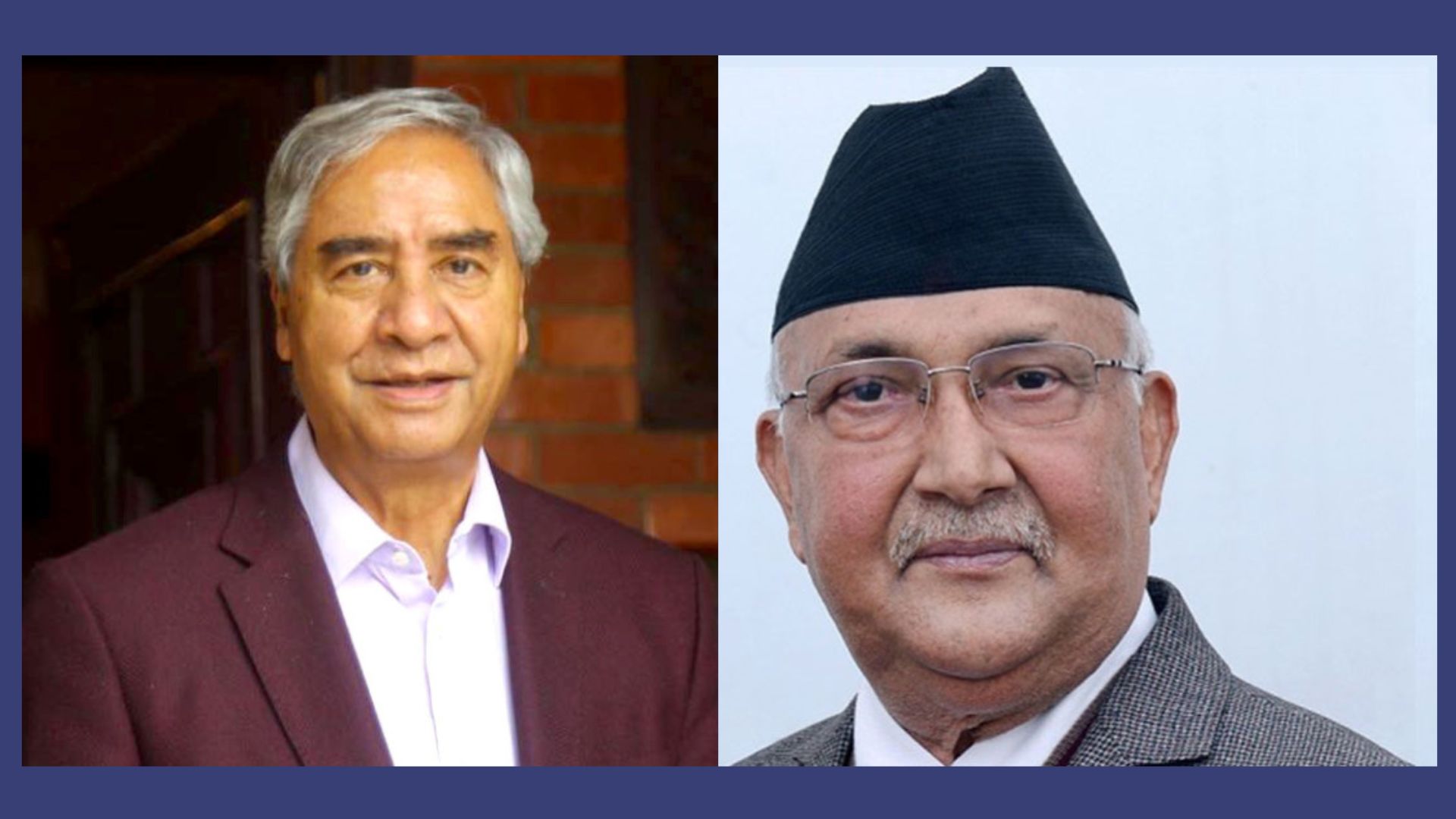"You can only know yourself by being yourself"
We use Google Cloud Translation Services. Google requires we provide the following disclaimer relating to use of this service:
This service may contain translations powered by Google. Google disclaims all warranties related to the translations, expressed or implied, including any warranties of accuracy, reliability, and any implied warranties of merchantability, fitness for a particular purpose, and noninfringement.


Author Saraswati Pratishka's new novel 'Swa' is published. The book contains stories of human stress and restless heart.



The novelist asks people – have you found your 'self' in life? On the topic of 'Self' search waiting with Deepak Sapkota conversation :
After reading 'Swa', it seems that your writing has moved from the social environment of the first novel 'Nathiya' to philosophy and spirituality. What is the reason for this literary journey to change the path?
It was natural for readers who liked a novel written on social themes to wait for another novel of the same taste. Every author's new book is not new, most of them are just repetitions of their old books. The goal was that the reader should feel something new in the new book. That's why I tried to write books with different themes and different tastes.
My interest is in philosophy and nature is spiritual. That's why I wrote a book about interest, nature and trends. In particular, I have not changed my path in my writing journey, I have changed the landscapes I see while walking. In one form or another, Nathiya's journey to Samali was also a spontaneous journey. Saptam's journey in 'Swa' is also self-oriented. 'Nathiya' is the social journey of life while 'self' is the journey of life. Both are journeys of life.
Writing a novel by intertwining contemporaneity and philosophy is a complex matter. How did you go about overcoming this complication?
Writing a novel by intertwining contemporaneity and philosophy is challenging as well as exciting. It is a difficult task, but not impossible, to take the characters on a journey of vision without letting the smooth flow of the story break the rhythm of the story. I was clear about the philosophical questions I wanted to raise in the novel, but I had one main story and seven subplots. When these two are mixed together, the color that comes out is the color of 'Self'. When these two are mixed together, the taste that comes out is the taste of 'Self'.
Mountaineers say that descending Mount Everest is as challenging as climbing it. Even in literature, as complicated as taking a flight of imagination is, the safe landing of that flight is equally complicated and risky. Magical realism helped me for this. Literary concepts, arguments and theories are said to be behind literature, but sometimes the invention of these concepts, arguments and theories makes the journey of a writer very easy. In this sense, it is true that magical realism has made my writing easier. The main character of
'Swa' is male and the supporting character is female. The man is at the forefront of the search for 'Self' and the novel ends with the undecided feeling of the woman. Whereas, you also had the opportunity to make the female character the officer of salvation. Why is male favoritism even in imagination?
At a glance, the main character of 'Swa' is male and the supporting character is female, but the strong character of 'Swa' is female and the weak character is male. Both are in love, but Saptam is totally dependent on Kavya. Kavya is not dependent on Saptam. Saptham has the fear of losing Kavya and because of that fear he quarrels over small things. On the other hand, Kavya says that if I have to choose between love and freedom, I will choose freedom. She is very calm, serious and understanding. Not only the seventh, most of the male characters of 'Swa' are weak, impatient, sometimes hasty, sometimes violent. Some even commit suicide due to being unable to cope with their mental disorder amid the accusations made by the society. This is a fantasy world. In the real world too, according to statistics, more men suffer from heart disease than women. Suicide is mostly committed by men. Short life also belongs to men. When a man becomes single for one reason or another, he immediately starts looking for help, feeling helpless. While If there is a woman in the same situation, she can struggle alone to establish her new existence.
Another fundamental question that 'Self' wants to ask is - 'Why should wives pay the price of men's thoughts and discoveries in every age? Does the wife have no self? Does the wife's self have no value?' In order to show this reality, the main character in 'Swa' is made male.
In the social, cultural and spiritual background of Nepal, the characters of 'Swa' are soaked with fun. In spite of this, he has worked to enhance the journey of enlightenment after the interval by building an imaginary world. Was the need for this composition inevitable or just the use of an authorial facility? To say
, we say that people live in reality, but people live in reality and fantasy at the same time. We set an imaginary value on a piece of paper that has no value and call it money. When money is stripped of its imaginary value, it becomes nothing more than a piece of paper. We carve stone idols and worship them by installing an imaginary god.
 Some people plant an imaginary fear in themselves that if they sin in this life, they will suffer in the next life, and they stop themselves from committing sins by succumbing to that fear. A Nepali working in the bay wakes up emotionally in the bed of his village every morning. The life we live as reality, more than half of the life is spent in imagination. That's why I think the creation of an imaginary world in literature is very common. The creation of an imaginary world in 'self' also came naturally while writing.
Some people plant an imaginary fear in themselves that if they sin in this life, they will suffer in the next life, and they stop themselves from committing sins by succumbing to that fear. A Nepali working in the bay wakes up emotionally in the bed of his village every morning. The life we live as reality, more than half of the life is spent in imagination. That's why I think the creation of an imaginary world in literature is very common. The creation of an imaginary world in 'self' also came naturally while writing.
As a writer, what do you consider to be the power and limits of 'self'?
'Self' has only the flavor of Buddhist philosophy, no explanation of philosophy or philosophy. Whether it is Buddhist literature or quantum physics, whether it is psychology or spirituality, all these subjects are only used as tools. The main body is the narrative. The life of stories and stories is the life of the self. Now what is considered power and what is the limit? It is up to you to separate it!
There is also a point of view that every story is in some way the author's own story, though not without a great deal of imagination. In that sense, is your experience more in 'self' or imagination?
While writing 'Nathiya', I wrote the book as a witness even though I was not a writer in many ways. My experience while writing 'Self' is exactly the opposite. Since this book is close to my thoughts, experiences, feelings, interests, trends, understandings, I could not write it in a neutral way. In the book, the author talks about the mind, mood and psychology and closes the door of his mind! That was probably not possible. I find myself in one form or another, especially in stories with female characters. Be it Kavya or Andheri, Susheela or Vaidehi, somehow it has the story of me and my friends around me.
Getting 'self' means getting 'Moksha'. Moksha has many philosophies, views and opinions, which are sometimes contradictory. What do you think 'self' is?
In my opinion, 'self' is self-identification, self-exploration and self-realization. Man is the only creature in the history of the earth, who has the ability to think for himself. Human civilization, culture, religion, philosophy, art, literature and history were born because of this self-centered ability. All philosophy of the world is an attempt at self-discovery and self-discovery.
Yajurveda's 'Aham Brahmasmi', Rigveda's 'Pragyanam Brahma', 'Tattvamasi' of Samaveda and 'Ayamatma Brahma' of Atharvaveda i.e. the four Mahavakyas of Vedanta are the results of self-realization. Burdaman Mahavira and Gautama Buddha, who were born in the same period, being a few years older and younger, were self-centered in their pursuit of Kaivalya knowledge and Sambodhi knowledge. Sukhsayal of both the royal families became a recluse ascetic.
In life, whatever man seeks for salvation, for nirvana, for liberation or for worldly dreams, in reality, they are all frequencies of the human self. Self is life. Life is existence. Life is essence.
Can you describe a pivotal scene or moment in the self? Which covers the essence of the novel?
Even after coming back from Gandhakuti, when Saptam disappears again in search of self, the psychosis he does before deciding to disappear is very important. Yes, the stories of the Buddha's thought and philosophy dissolved in Gandhakuti brought about a lot of change in him, the conflict between his conscious mind and subconscious mind ended, but he could not attain the self. Even the light shown by the Buddha and Buddhas was not enough for him.
In the end, he left the Buddha's path and walked in search of his own original path. There is a sentence written by Saptam in his mind's pad, 'Each person in the world can only know himself by being others or by trying to be others.' In
'' novel, subjects like politics and materiality are missing. What do you say about this?
where these two topics are missing? The world's most popular sport has left football and cricket. From the stock market, the problems of cooperatives have been left out. It is natural to leave out things other than the subject on which the novel is written. So life itself is a physical combination. I myself am aware of politics and physics. However, the subject of 'self' is somewhat different. When materialism alone does not satisfy the self and makes one happy, one begins the journey of spirituality.
Life would be meaningful if it was full of materiality, then more than fifty thousand people would not have committed suicide in the year 2023 in America, which is called the country of dreams. Anxiety and depression are epidemic here too. Among all this, the topic that the novel tries to raise is the meeting point between physics and spirituality. As far as political opinions or ideas are concerned, that is a different novel. It was in the initial manuscript, later on, politics and a political timeline were deliberately removed in a novel like 'Swa'.
 प्रकाशित : असार १५, २०८१ ०९:४८
प्रकाशित : असार १५, २०८१ ०९:४८
 २७.१२°C काठमाडौं
२७.१२°C काठमाडौं


















